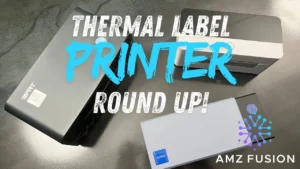Private label sourcing for Amazon is a strategic approach that empowers sellers to create and sell their own branded products on the platform. This business model opens up a world of possibilities, allowing sellers to establish their unique brand presence, maximize profit margins, and gain creative control over their products.
In this article, we will provide expert tips and guidance on private label sourcing for Amazon. Whether you’re new to private labeling Amazon products or looking to enhance your existing brand, these insights will help you navigate the challenges and unlock the potential of the private label business model.
Key Takeaways
- Private label sourcing for Amazon enables sellers to create and sell their own branded products on the platform.
- By sourcing products directly from manufacturers, sellers can enjoy higher profit margins and have creative control over products.
- Brand ownership and differentiation are key advantages of private label sourcing for Amazon.
- Starting an Amazon private label business involves steps such as finding profitable products and qualified suppliers.
- Enrolling in Amazon’s Brand Registry program helps protect your brand and unlock additional features.
What is Amazon Private Label?
Amazon private label is a program that allows sellers to create and sell their own branded products on the Amazon platform. This business model involves taking an existing product, customizing it to meet the needs of your target audience, and branding it with your own logo and packaging. By leveraging the power of the Amazon marketplace, sellers can build their own brand and enjoy higher profit margins and control over their products.
Why Choose Private Label Sourcing for Amazon?
There are several reasons why sellers choose private label sourcing for Amazon. Firstly, it offers higher profit margins compared to reselling other brands’ products. By sourcing products directly from manufacturers, sellers can reduce costs and set their own prices.
Additionally, private label sourcing allows for complete creative control over product design, branding, and packaging, giving sellers the opportunity to differentiate themselves in the market.
Another advantage is brand ownership, which allows sellers to build a long-term asset and create customer loyalty. By establishing their brand, sellers can develop a loyal customer base that recognizes and trusts their products.
Last, but not least, private label products typically face less competition on Amazon, making it easier to rank well in search results and attract customers. With fewer competing sellers, private label products have a greater chance of capturing the attention and loyalty of potential buyers.
Overall, private label sourcing for Amazon offers a multitude of benefits, including higher profit margins, creative control, brand ownership, and less competition. This business model provides sellers with the opportunity to establish their brand presence and enjoy the advantages of owning and selling their own unique products.
How to Start an Amazon Private Label Business
Starting a private label business on Amazon involves several important steps that will set you up for success. By following these key strategies, you can establish a profitable and sustainable Amazon private label business.
Finding Profitable Products
The first step in starting a private label business is to research and identify profitable products. To do this, you should analyze sales data, customer reviews, and competition within the Amazon marketplace. Look for products with high demand, low competition, and the potential for a good profit margin.
Here are some tips for finding profitable products:
- Use Amazon’s Best Sellers and Hot New Releases categories to identify trending products.
- Read customer reviews to understand the pain points and preferences of potential buyers.
- Utilize keyword research tools to identify high-demand search terms.
- Consider niche markets where you can provide unique value or solve a specific problem.
Qualifying Suppliers
Once you’ve identified the products you want to sell, the next step is to find qualified suppliers who can manufacture your private label products to your specifications. It’s important to work with reliable and reputable suppliers to ensure the quality of your products and the timely delivery of orders.
Here are some steps to help you qualify suppliers:
- Research potential suppliers and read reviews or testimonials from other clients.
- Request product samples to evaluate the quality and craftsmanship.
- Ask for references and contact them to verify the supplier’s reliability and professionalism.
- Negotiate pricing, payment terms, and production timelines.
- Consider working with a private label sourcing agent or third-party inspection company for added assurance.
Fulfillment Options
Once you have established a partnership with your suppliers and your private label products are ready, you need to choose the best fulfillment method for your business. Amazon FBA (Fulfillment by Amazon) is a popular and convenient option for many private label sellers.
Here are some fulfillment options to consider:
- Amazon FBA: This program allows you to store your products in Amazon’s fulfillment centers. Amazon handles order fulfillment, shipping, and customer service.
- Fulfillment by Merchant (FBM): With FBM, you handle all aspects of order fulfillment, including storage, packaging, and shipping. This option gives you more control but requires additional logistics.
- Third-party fulfillment services: There are also third-party fulfillment providers outside of Amazon that can handle your order fulfillment for a fee.
Brand Registry
Enrolling in Amazon’s Brand Registry program is crucial to protect your brand and unlock additional features and benefits. Brand Registry helps you establish and maintain control over your brand’s content, intellectual property, and customer experience on Amazon.
Benefits of Amazon Brand Registry include:
“With Brand Registry, you have greater control over your product listings and access to additional tools to help protect your brand, including proactive brand protection and reporting tools.”
Pricing Strategy and Advertising Options
Developing a competitive pricing strategy is essential to attract customers and maximize your profit margins. Conduct thorough market research to determine the optimal price point for your private label products. Consider factors such as production costs, competitor pricing, and perceived value.
To promote your private label products and increase visibility on Amazon, you can explore advertising options such as sponsored product ads, display ads, and video ads. These advertising tools can help you reach your target audience, increase traffic to your product listings, and boost sales.
By following these steps and implementing these strategies, you can lay a strong foundation for building a successful private label business on Amazon. Remember to continually monitor market trends, adapt your products and strategies as needed, and consistently provide exceptional customer service to maintain growth and profitability.
Private Label Sourcing Wrap Up
Private label sourcing for Amazon offers a wealth of opportunities for sellers looking to create and sell their own branded products. By following expert tips and strategies, sellers can navigate the complexities of the private label business model and achieve success.
One key aspect of a successful private label business is choosing profitable products. Thorough market research, analysis of sales data, and an understanding of customer preferences are crucial in identifying products with high demand and profit potential.
Additionally, finding reliable suppliers is essential. Working with trusted manufacturers who can meet quality standards and deliver products on time is key to establishing a strong and consistent supply chain.
Finally, taking advantage of branding and marketing opportunities can help sellers differentiate their private label products and attract customers. Building a strong brand presence, optimizing product listings, and leveraging advertising options can drive visibility and sales.
With dedication, hard work, and the right strategies in place, a private label business on Amazon can lead to higher profit margins, increased brand recognition, and long-term success.
Learn More About Sourcing Products
FAQ
What is private label sourcing for Amazon?
Private label sourcing for Amazon is a business model that allows sellers to create and sell their own branded products on the Amazon platform. It involves customizing existing products, branding them with your own logo and packaging, and leveraging the Amazon marketplace to build your own brand and enjoy higher profit margins.
Why should I choose private label sourcing for Amazon?
There are several advantages to choosing private label sourcing for Amazon. It offers higher profit margins compared to reselling other brands’ products, allows for creative control over product design and branding, provides an opportunity to build a long-term asset and customer loyalty, and faces less competition on Amazon, making it easier to rank well in search results and attract customers.
How do I start an Amazon private label business?
To start an Amazon private label business, you need to research and find profitable products, find qualified suppliers who can manufacture your private label products, decide on the best fulfillment method, enroll in Amazon’s Brand Registry program, and develop a pricing strategy and consider advertising options to promote your private label products.
What is Amazon private label?
Amazon private label is a program that allows sellers to create and sell their own branded products on the Amazon platform. It involves taking an existing product, customizing it to meet the needs of your target audience, and branding it with your own logo and packaging.
How can private label sourcing benefit my business?
Private label sourcing offers several benefits for your business. It provides higher profit margins compared to reselling other brands’ products, gives you complete creative control over product design, branding, and packaging, allows you to build a long-term asset and create customer loyalty, and faces less competition on Amazon, making it easier to attract customers.




